#emotional flashbacks
Text

#vent#traumacore#mine#ventcore#actuallytraumatized#trauma#actually ptsd#trauma vent#traumacore vent#actuallyabused#cptsd#emotional flashbacks
162 notes
·
View notes
Text


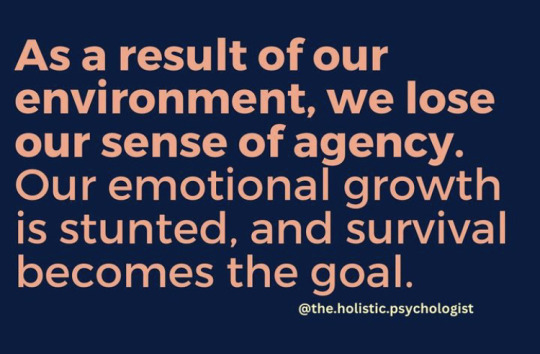


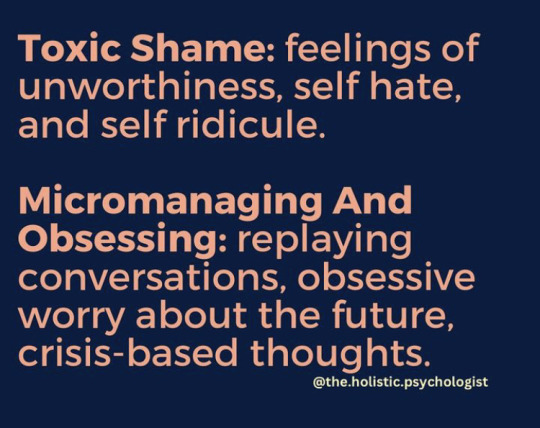
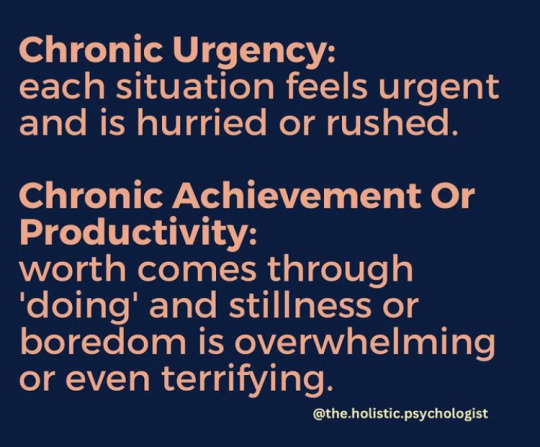
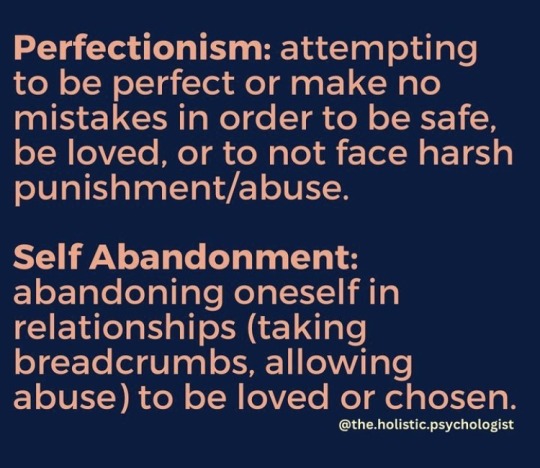
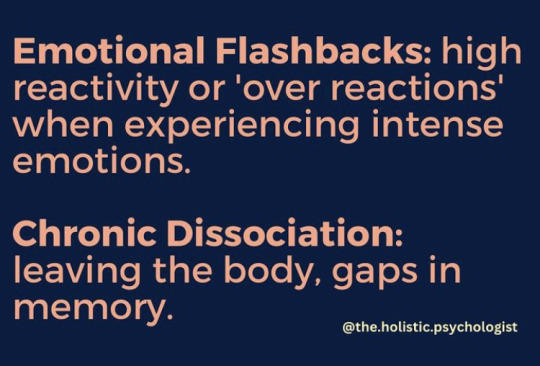
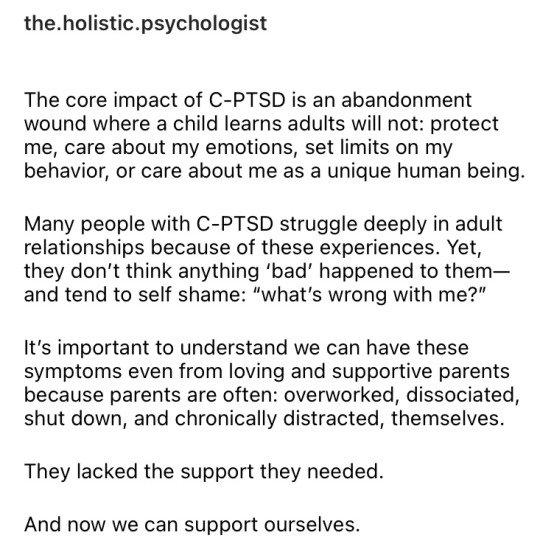
#childhood trauma#complex post traumatic stress disorder#cptsd#cptsd coping#cptsd recovery#hypervigilance#inner critic#trust issues#dysfunctional household#shame#toxic shame#perfectionism#self abandonment#emotional flashbacks#disassociation
470 notes
·
View notes
Text
Trauma is so fucked up. Like cool, imma just feel like a small child who needs to hide for no reason at all.
Can I cancel my subscription?
340 notes
·
View notes
Text
signs you’re not doing well:
you’re stress-scrolling social media hoping to find a distraction
you’re struggling just to get to the end of the day
you’ve dropped your daily routine, you’re only doing the bare minimum
you’re forgetting to eat, or feel too tense and nauseous to eat
you’re feeling too weak or too stressed to get/make food
all you can manage is to watch a show or play a video game
all you can manage is to indulge in your favourite media and if it’s not available you feel like you’ll break down immediately
your thoughts are racing in distress and you can’t think clearly
you feel pressure like you should be doing something but you can’t remember what
you feel like you’re in the wrong place, or a wrong time
you can’t tell if something bad is going on right now or if you’re re-living past
your own head feels like a hostile place and you want to get out
any chore you have to do feels impossible and unachievable
interaction with others feels dangerous
your emotions shift from fear, pain, anger, frustration, anxiety, sorrow
you feel like you need to stay distracted no matter what, you shuffle multiple media trying to stop yourself from having thoughts
you’re starting to feel physical pain in your head, joints, limbs, stomach
you can no longer digest food and your stomach is tense and hard
your appetite is a mess and you can’t tell if you need to eat or not
you’re too tired to get up, or to stay up for longer than 30 seconds
any detail is sending you into the dark thoughts, you’re drawn to spiraling
you’re spiraling and everything feels like it will never be okay
you’re overwhelmed with shame you’re not doing something you feel you’re supposed to be getting done
you’re scared you won’t be able to complete a chore or a task even if it’s days/weeks from now
it’s hard to take a deep breath or to calm your breathing
you feel like you won’t be able to take this for a long time
your thoughts start leaning closer to suicidal
If you’re feeling these, know that you’re currently not obliged to do anything but to focus on yourself and feeling better. Whatever chores or responsibilities there are, you can drop them. Your mental and emotional well being is more important than whatever else is going on. You are struggling and you deserve rest, compassion, love, kindness, and support. Life is not supposed to feel this way, you’re going trough something difficult and traumatic. Also, you will not feel this forever, good times will come around, all you need to do is survive right now. Do whatever makes you feel a little more willing to be alive right now.
#cptsd#trauma#furiousgoldfish#ptsd#chronic illness#chronic exhaustion#emotional flashbacks#trauma episodes#struggling with trauma#cptsd symptoms
1K notes
·
View notes
Text
My last post on PTSD being more than flashbacks and nightmares kinda took off, so I wanted to talk about something many people mentioned in the reblogs: flashbacks are probably not what you think they are.
The depiction you see in movies where someone is suddenly thrust into this vivid hallucination where they see everything in extreme detail and completely forget where they are is possible, but certainly uncommon.
For a lot of people, it's kind of like a mental image. Like your brain just involuntarily starts strongly daydreaming the trauma, and you're seeing it in the back of your mind. Sometime it's an "I close my eyes and see it again" that kind of thing. But there's also other kinds than visual.
There's auditory, but that can happen without a visual component. And it can feel like a hallucination, but again it can feel like your brain is playing the audio from the back on your mind, like a vivid daydream.
There's also somatic (sometimes called tactile or physical) flashbacks, which is where you physically feel yourself being touch like how you were again (very common in assualt and physical/sexual abuse survivors), sometimes as a hallucination, sometimes as the same sort of back of the mind daydream thing.
And then there's emotional flashbacks, really common in abuse survivors and C-PTSD, where you feel like you're emotionally back where you were when the trauma happened. You're feeling what you felt when the trauma happened vidily enough for it to feel like you're back there. This is different from emotional reactivity after being reminded of trauma, because it's this exact sort of re-experiencing of the emotions you felt. Emotional flashbacks actually feel like you're back there, emotional reactivity doesn't, it feels like you're reacting to it but it's not happening again.
All of these can occur together in the same flashbacks, or separately. So you can have an auditory-somatic flashback or just an emotional one, etc.
People also said this is similar with nightmares, but I don't experience them myself so I can't say (people with PTSD nightmares feel free to share your experiences!)
#ptsd awareness#cptsd awareness#ptsd#cptsd#post traumatic stress disorder#complex post traumatic stress disorder#trauma#childhood trauma#mental health#neurodivergent#mental illness#disabled#ptsd things#cptsd things#mental health awareness#ptsd thoughts#cptsd thoughts#flashbacks#ptsd flashbacks#emotional flashbacks#visual flashbacks#auditory flashbacks#somatic flashbacks
394 notes
·
View notes
Text
emotional flashbacks are like running up a hill but you never make any progress. you’re not even running, you’re feet are glued to the floor. but goddamn are you still trying to fucking run.
211 notes
·
View notes
Text
I don't front for long, but I front often. And the reason for that is my system could do literally anything, but very specific situations, poses, words, phrases, might make them snap into a weird state where they feel like despite being here, they mentally and emotionally never go out of the situation we were in many, many years ago. Sometimes, it feels like they go back to it. They understand they're still in the present, but their emotions and mindset is back.
For the longest time we didn't know that was an emotional flashback. And honestly, don't see people talking about it much, so let me make it clear:
Emotional flashbacks can be anything if your emotions, mental state, or mindset are back to your past.
That could include getting triggered, and instead of a flashback, you only feel emotions you felt during that situation. And sometimes, you feel like it's not right, why are you having those emotions? Start looking for it, and only then get a flashback.
That could mean accidentally gaining your mindset back for a few seconds due to very specific triggers. And you may not even get a flashback, the memories might be heavily suppressed! And you'll be confused about why it happened and why it passed so quickly.
Sometimes, when memories are suppressed so much, you can't get flashbacks, but you're still triggered, it's the emotions that are being brought back. Imagine your memory like an orange (fruit). And your brain is suppressing it, so it's squeezing it as much as possible, and all you get from it is juice. The juice is your emotions.
They happen more often than you realize! Every trigger you experience that isn't followed by a flashback could be counted as an emotional flashback.
Most important thing to realize is, when registering you are having an emotional flashback – don't go looking for memories. It's not worth it! More often than not, it's easier to deal with an emotional flashback rather than a memory one! It's not the full scale of what bothers you (because you have only the orange juice and not the orange itself, which is heavier, and while the juice is sticky and nasty sometimes, there are ways of washing it off) and your soothers, caretakers, and/or protectors would probably take care of it quicker.
You got this!
-sexual protector
#did#osdd system#did system#osdd#system#dissociative identity disorder#other specified dissociative disorder#system stuff#system things#did osdd#osdd 1a#osdd 1b#complex dissociative identity disorder#emotional flashbacks#flashback#flashbacks#trauma#abuse trauma#living with ptsd#ptsd recovery#complex ptsd#ptsd
48 notes
·
View notes
Text
cw: suicidal thoughts
"yeah im doing alright, just really stressed at the moment"
*catches myself fantasising about my suicide*
#childhood ptsd#complex ptsd#cptsd problems#cptsd thoughts#emotional flashbacks#living with cptsd#did osdd#emotional neglect#tw cptsd#did osdd memes#tw sucidal ideation#tw sui ideation#tw sui implied
686 notes
·
View notes
Text
Emotional Regulation
So I have CPTSD. Everything I've read mostly points to this being a lifelong condition (yay :P) that is incredibly difficult for all of us whom suffer from it. I know it has been for me. I honestly don't know if I'd have developed it if my parents had been loving, supportive, and understanding like they should have. Because, even if they had been, I would still have likely had many many years of gas lighting from society, them, and my extended family to be a gender other than what I was. And that takes its toll on anyone's psyche.
But who knows, maybe if they'd been really supportive, then I wouldn't have had years of thinking I was crazy or shameful, maybe I would have transitioned really young as soon as I could tell them they were wrong. Then all I'd have to deal with is some body dysphoria. But then even that can take its toll as well. So I really couldn't say if I was destined to have this incredibly difficult mental health condition or not.
Either way, I really wish I'd had the loving supportive family every child deserves. I really wish I didn't find my psyche shattering as I grew up, getting stuck repeatedly at every traumatic event that I can remember, and actively forgetting everything I couldn't along with most of my other memories. Such that now, my memories consist of shattered disorganized shards scattered over the floor, most of those shards long since missing. It's really difficult to live when all you really have is now.
People talk about their childhoods like there's this linear well established timeline in their memories. It was a long time before I realized this was the typical way people remember their past. That for most people, they can remember approximately when such a memory occurred, in sequence with another. Even now, this is so foreign to me. I remember things in disjointed pieces, any one memory is not connected to any other. And few, if any, are connected to a specific time that I can locate.
Then there is the ability to remember what you did yesterday, or last week, or even last month in day to day life. That it's hard to know what's happened and what's been done recently. This was particularly bad when I was dissociating all the time, fortunately, therapy has helped with that part, and I don't do it as much and I can remember more of my day to day life. But even now, there are still significant holes in my memories of adult life. And admittedly as I struggle through my current flare of CPTSD symptoms, I sometimes wish I could dissociate like I used to so that I don't have to feel all of this horrible stuff. It hurts like hell.
If someone created the universe, they must be one of the most sadistic assholes to have ever existed, making it so healing is so effing painful, much less making thinking feeling beings feed off of one another.
In this journey of trying to heal, I've encountered many people talking about how, when we were abused as children we didn't develop our emotional regulation skills like normal loved, unabused kids do. I always found these comments or suppositions confusing. In large part due to the fact that I don't really understand what emotional regulation means. As a child, trying to survive, the only thing that worked, that made things even remotely bearable was dampening down on emotions until I didn't feel hardly anything at all. I wasn't particularly good at this, I still had feelings but they were distorted hazy half hearted things that would escape out, usually as anger, irritability, sadness, often fear, sometimes even joy would get out. But none were fully formed, or fully embraced, because if I did, then the pain would be in full force, the shame, the horror I constantly felt at what I was going through. So I did my best to damp down my emotions to almost nothing, and dissociate as much as I could so that I didn't have to feel or atleast remember feeling all those horrible things I felt. And the plus side to dissociation is that you truly only live in the moment. You can forget so much that way. You can ride the bus to school, but not remember any of it, just one moment you're at home and the next, poof, you're at school, and the next, poof, it's time to go home again and get on the bus, and poof the next you're at home again... you get the idea.
Emotions when all of the above were unsuccessful and I felt them anyway, usually it was the really really bad ones. And they were felt at 120% full blast. It was either 10 mph, or 120 mph. No inbetween. But people who talk about the ability to regulate emotions describe it as having inbetweens. Not having to feel the full blast, but not suppressing it completely either.
For the longest time when I encountered that phrase around emotional regulation, my mind just skittered past it, as it didn't make any sense to me. But I found myself thinking about it a couple months ago. And some kind fellow people with CPTSD pointed me to links that helped to explain the concept... except, those links were mostly just confusing. And unfortunately, my brain interpreted them as, "you are deficient, you're inability to regulate is your fault." Which didn't help. I honestly don't know if those explanations actually implied that, but it's what it felt like. Maybe because I didn't understand what they were saying.
Then... recently I returned to work, full time. And an interesting, if sucky, thing happened. I was fine at work, I could joke, I could laugh and have fun with coworkers and feel empathy for my patients and basically function somewhat like a typical human being in what I imagine is a healthy fashion. But as soon as I left work and went home, I had no energy left to keep the intrusive memories and emotions in check. And I would immediately start to crash. Spiraling down the rabbit hole of all those horrible memories. Nothing had specifically triggered them, it's just I ran out of spoons and they took over. I'd used up all my spoons at work.
Obviously, I'd overestimated my ability to return to full time work, but also it felt like there was an insight here. And it came down to my emotional bandwidth. If I had enough emotional energy, enough spoons, then minor triggers that normally would have lead me back down that lovely negative spiral, wouldn't actually set me off, and I could continue to function. And this was the neat part, I could continue to function without having all my walls slam down and turn everything numb. But, if I run out of that energy, if I run out of those spoons, then any little thing can set me down that self destructive spiral.
And the more I've thought about this, the more I think this is what people mean when they talk about emotional regulation. That most people have a large fount of this emotional energy to buffer against the extremes. And thus can handle day to day joys, stresses and hurtful things without completely falling apart. If this is the case then I guess I've developed some emotional regulation after all, though it's limited.
But why is it so limited? Why didn't I have any before? And the more I look at it. I see it in terms of bandwidth, energy, and/or spoons. Before, when I was having to live in survival mode, all of my emotional energy was being used to just survive. I was constantly in fight or flight. There was no energy to spare for nuance. My bandwidth was incredibly limited because so much of it was taken up with just surviving from one day to the next, with constant vigilance. But when we are no longer in those situations, and just as importantly, when we are not constantly flashing back to those situations, we start to have that bandwidth become available for the nuance. We can start feeling things in between because we have the energy to do so. It's no longer entirely about survive or die.
And that's the worst part about flashbacks. Even though I'm no longer in that constant life or death situation, those flashbacks have me believing I am. And contrary to popular media's depiction of flashbacks, most of the time it's not getting stuck in a living visual memory of an event. No, the vast majority of those flashbacks are emotional flashbacks. Getting stuck in the feelings of the event, the feelings I couldn't suppress anymore, the constant feeling of being in danger, of having my life, my very existence threatened, which brings on the constant sense of danger, of fight or flight. Which means, no emotional energy for anything else, except the extremes. Everything in my life currently can be perfectly fine, safe, wonderful even. But if I'm stuck in an emotional flashback, none of the current circumstances matter, because I'm emotionally back in survival mode, feeling constantly threatened, trying to survive, trying to decide if I need to fight or run. And if I'm stuck there... then there isn't any emotional energy left for anything else.
The really effing sucky part, is that often I don't know I'm in an emotional flashback until after it's gone away, and I can see looking back that how I was feeling didn't fit at all with what was actually happening at the time. I reacted to an outside observer in a rather extreme, or worse in a completely irrational manner. But then when I'm in the middle of it, I guess it's understandable that I have a hard time recognizing it, as all my energy is directed towards surviving, towards keeping the pain and my fears at bay.
So maybe emotional regulation is just having enough emotional energy to filter the experiences you're having into a much more nuanced pattern, rather than having to sort things into binary extremes of bad, not bad. And if that's the case, then maybe, just maybe, I am healing, because I'm starting to free up some of my bandwidth to start sorting out the nuances... even if I can't quite identify what those nuances are yet.
#trans#transgender#lgbt+#lgbtqia#lgbt#trans kids#childhood trauma#complex ptsd#trauma#family#Emotional regulation#mental health#coping#emotional flashbacks#flashbacks#emotional energy#emotional bandwidth#lgbtqia+#queer
12 notes
·
View notes
Text


How do I let it go?
#vent#mine#ventcore#trauma#trauma vent#actuallytraumatized#traumacore#traumacore vent#actually ptsd#vent tw#tw trauma#ptsd vent#acceptance#remember#tw intrusive thoughts#emotional flashbacks#flashbacks
611 notes
·
View notes
Text
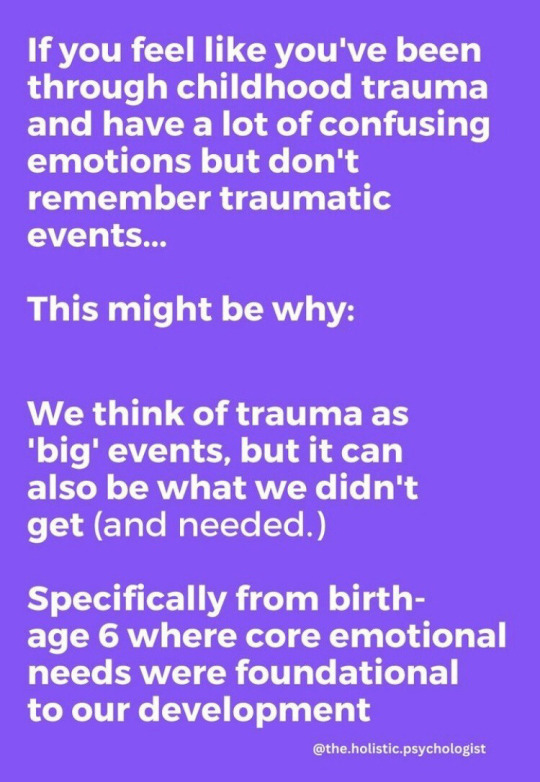




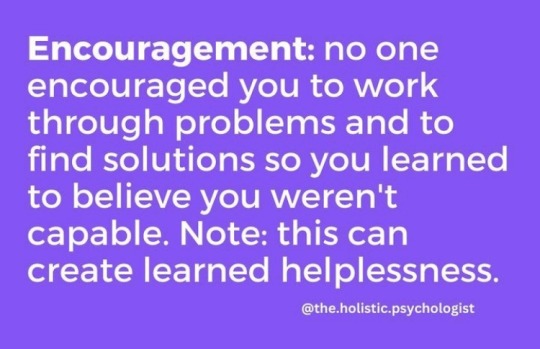
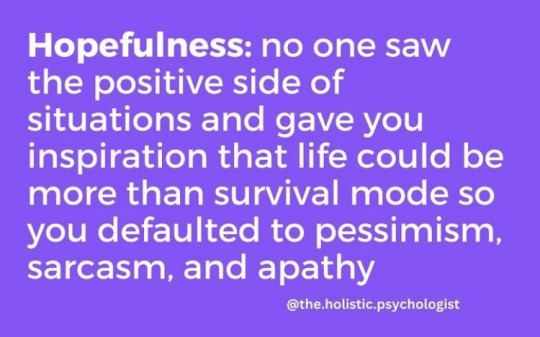
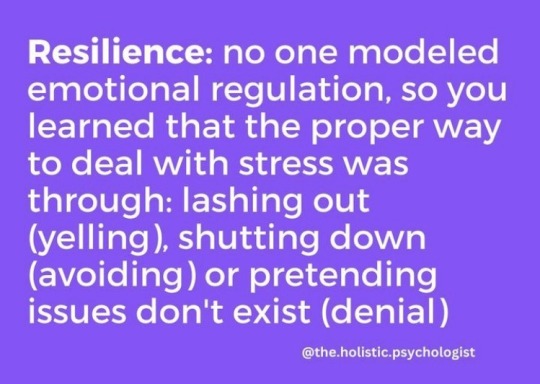
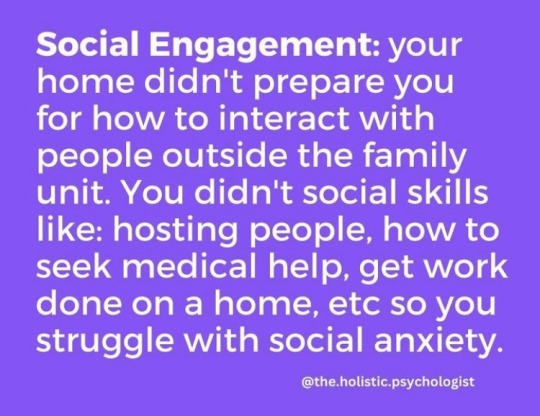
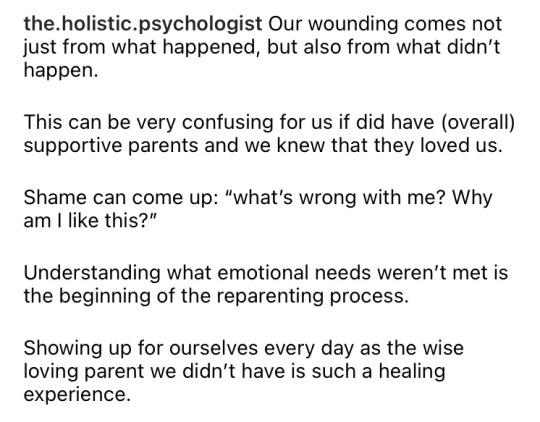
#childhood trauma#trauma recovery#unhealed trauma#complex post traumatic stress disorder#cptsd#cptsd coping#cptsd awareness#cptsd healing#shame#overcoming shame#trauma wound#emotional neglect#emotional flashbacks#inner child#emotional needs#emotional dysregulation#trust issues
224 notes
·
View notes
Text
part of accepting i have C-PTSD is realizing my flashbacks aren't like the ones typically shown in tv shows or movies.
i thought a flashback was only when you saw traumatic memories like a movie- i see partial images, i hear sounds, i feel physical body sensations. both of these things can be flashbacks.
i thought the "appropriate" emotional response to a flashback was only feeling extreme fear and breaking down into tears that you can't stop- i feel intense anxiety, despair, and sometimes nothing with my dissociation. both of these things can emotional responses.
i didn't think a (sometimes) sudden feeling of being younger, being trapped, or deep, toxic shame, fear, dread, sadness, helplessness, and/or hopelessness were flashbacks at all- i learned a year ago that emotional flashbacks were a thing.
this is why mental health education is so important- so many signs of ptsd in my childhood were missed by me because i had no idea they were even signs.
#and it's still taking me awhile to accept my ptsd diagnosis because of the misconceptions.#“what if i'm faking” you literally have like every single sign and symptom calm down#childhood ptsd#ptsd#post traumatic stress disorder#complex post traumatic stress disorder#complex ptsd#cptsd#flashbacks#emotional flashbacks#mental health awareness#ptsd awareness
21 notes
·
View notes
Text
whenever anything happens I only know few years later how I actually feel about it
#ptsd#delayed reactions#delayed emotional responses#emotional flashbacks#not understanding the circumstances and significance of the trauma#until years later when you manage to unpack it and get a grip on what actually transpired#without being suffocated by guilt and belief that it was all your fault#except sometimes even just daily events get delayed reactions#because i was scared in the real time#and didn't get to process anything on the spot#because i was just thinking of how to get out of that situation alive
191 notes
·
View notes
Text
The fact that someone can go an entire friendship with you, deceiving you and manipulating you, the weight of that comes crushing down on you. It causes trust issues, makes you scared what else could they have done that you’re unaware of, gives you anxiety about future relationships and worst of all, it makes you realize they didn’t love you. They aren’t even hurt by hurting you. They don’t care how antagonistic they are they excuse it. “I wasn’t trying to hurt you, so therefore you aren’t hurt.” Just bc you’re not affected by certain kind of emotional abuse, doesn’t mean others aren’t.
#my text#actually traumatized#actually abused#actually cptsd#actuallyabused#actually bullied#actually traumatised#actuallytraumatized#actually anxiety#actually anxious#actuallymentallyill#actually disabled#actually bpd#actually mentally ill#actually borderline#bpd vent#borderline vent#actually bipolar#cptsd#complex trauma#emotional flashbacks#fake friends#fake people#deceitfulness#manipulation
11 notes
·
View notes
Text
Being new at something, especially in front of people, is such a huge trigger. Making mistakes is such a huge trigger. How do you explain to people you got yelled (punished, abused, etc) at too much as a kid so even the threat of making a mistake throws you into a freeze response and you are not, in fact, a helpless useless wet paper towel of a human being
#cptsd#cptsdhealing#cptsd recovery#perfectionism#nuerodivergent#adhd inattentive#bad day#emotional flashbacks#adhd#actually adhd#neurodiversity
11 notes
·
View notes
Text
Coping Skills: Emotional Flashbacks
What are Emotional Flashbacks?
An emotional flashback is when we are triggered into living in the emotional/psychological state we experienced during our traumatic childhood experiences. We experience a regression to the emotional state of a child in trauma. This can be an experience that we are not aware of, either thinking it is about the current situation or knowing that our emotions are all over the place/disproportionate but unsure where the feelings are coming from.
Example A) You could be in a situation where you can’t easily leave (IE leaving could negatively affect a job, can not get out of a social situation or traffic). This can cause you to feel trapped. This trapped feeling is elevated beyond a normal amount and causes you to be dysregulated and negatively impacts the situation. You then might spend hours in a state of feeling trapped and the knock-on emotional effects like helplessness, fear, agitation etc. This could be because you were often or always physically or emotionally trapped in a situation of abuse as a child.
Example B) At a performance review at work you receive feedback on areas where you could improve. Instead of feeling moderately discouraged, you feel terror and shame even to the point of having trembling hands or crying. You feel a consistent level of fear hanging around. This could be because criticism or not meeting a level of “perfection” often resulted in shaming or punishment.
Emotional Flashbacks In The Brain:
When we experience chronic childhood trauma we have our neurology and biochemistry altered. So when we have external or internal reminders of our trauma those old patterns are activated. We can end up in the emotional state we were in during childhood. We are “hijacked” by our amygdala, the emotional and survival parts of our brain.
Our stress response system is activated (Fight/Flight/Freeze/Fawn) and we are thrown out of our window of tolerance (hyper/hypoarousal). The neurochemistry of our brains and the hormonal chemistry of our bodies during stressful events cause our brains to encode information differently. Experiences of trauma can leave our body unable to properly process trauma and leave us vulnerable to living in stress constantly. The change in the way our brain encodes information leads to us being able to be triggered into flashbacks.
The repeating of mental and behaviour patterns from our traumatic childhood are also in part facilitated by our Implicit Memory System.
Sings You Are In An Emotional Flashback:
When our emotions are not matching the current situation we are in or the intensity is disproportionate to what we are going through right now is a good clue that you have been triggered into an emotional flashback. Your body is flooded with the brain and body patterns of a younger you.
Common Feelings:
Childlike
Fragile
Helpless
Hopeless
Intense shame
Lost
On edge
Rage
Small
Terror
Unstable
Common Thought Patterns:
Black-and-white thinking
Can be tied to intrusive thoughts
Catastrophising
Confusion
Difficulty finding words to communicate
Distrusting people or situations you have trusted
Judgmental of other
Mind going blank
Self judgmental
Trouble interacting with other people
Common Behaviours:
Disordered eating behaviours
Binge eating
Purging
Restricted eating
Endless scrolling
Getting into fights
Getting lost in fictional stories to the detriment of your relationships and ability to to do self-care
Isolating
Utilising substances to excess:
Alcohol
Misuse of OTC medications
Misuse of prescriptions
Unregulated drugs (heroin, cocaine, etc.)
Triggers of Emotional Flashbacks:
More information and the breakdown of coping under the cut
Triggers can be internal or external and don’t even always make sense right away.
External:
Being in a place where traumatic things happened
Being drunk and/or high
Being somewhere that looks like where the trauma happened
Being with the people who were involved in trauma
Criticism
Crowds
Facial expressions or body language perceived as threatening
Facial expressions or body language perceived as disapproval or disgust
Loud voices
Media depicting events similar to your trauma
Medical with characters who remind you of the perpetrator of the abuse
Others engaged in fighting
Passive-aggressive behaviour or perceived as passive-aggressive
People who are drunk and/or high
People who look like those who traumatised you
Physical touch of any kind
Smells that remind you of trauma
Sounds that remind you of the trauma
And anything else that our brain has linked to trauma
Internal:
Daydreams that drift into visualising traumatic situations
Illness
Injuries
Intrusive thoughts
Physical pain from any source
Rumination on personal faults
Rumination of feelings of vulnerability
Thirst and hunger
and others
Coping With Emotional Flashbacks
These steps are adapted from the work of Pete Walker (LMFT)
These skills do not all need to be done every time, sometimes skipping a step might be necessary or repeating a step.
1) Say To Yourself: “I am having a flashback”
When you realise you are feeling a flashback it can feel very frightening and placing yourself in time can be very hard. You can feel helpless, by acknowledging you are in a flashback you can know you are in the now
2) Remind Yourself: “I feel afraid but I am not in danger”
You are scared, but that does not mean you are in the same place you were when you were hurt. You are in the now, and you have the power to make decisions now.
3) Own Your Right to Have Boundaries
You can explain to people that their behaviours are upsetting you. You also have the right to leave situations that are causing distress.
4) Speak to Your Inner Child
Imagine your inner child and tell yourself what you needed to hear in the past. Emotional flashbacks are pulling from past fears, your inner child deserves to be treasured with unconditional love. Tell the little you that you will be there for them now. They are not abandoned. If there are specific messages you ache to hear from others, offer those reassurances to the inner child.
5) Deconstruct Eternity Thinking
Challenge the idea that this feeling will last forever. The pain was long in the past and now you can be in charge of moving forward. Again try and hold that this is a flashback and therefore not forever.
6) Remind Yourself You Are In An Adult body
You have control now, you are bigger and can make your own choices. You have the power to act now in ways you didn’t have in the past. Like with eternity thinking you can practice reminding yourself of this regularly to increase the ability to hold this truth during flashbacks.
7) Ease Back Into Your Body
Work through the dissociative state that flashbacks put you in.
Breathe deeply: focus on the pace of our breathing and how it feels.
Gently work with your body to promote relaxation: Try progressive muscle relaxation: Tighten each muscle group starting from the feet or forehead. Breathe in and hold as you tighten and then breathe out as you release the tension
Slow down your movements: Try to reduce the stress you’re putting on your body and move out of protective mode.
Get to a safe place: If you can get to a place where you feel relatively safe and can take time to soothe your body. Warm blankets, calming music, stuffed animals, and low-sensory environments can all help.
Feel fear without acting on it: Let the energy in your body move while in a place that feels safe. Attempt to not act out to the point of harm on the strong emotions. If to remain some action is necessary try to make sure the movement is not overexercising. You want to discharge the activation without hurting yourself. and then have plenty of time to rest. The goal is to be able to feel the fear without compulsive activity or shutdown.
8) Resist Drasticizing & Catastrophizing
Use thought-stopping: When thoughts that are degrading to yourself or trying to predict that things going forward will be horrible think stop and/or say stop. Putting pressure on your body as you think it, clapping your hands, or stomping your foot can help this be effective.
Use thought substitution and correction: Over time you can learn to replace the negative thought patterns with statements you memorise to counter the automatic thoughts. Statements that promote your self-efficacy and accomplishments.
9) Allow Yourself to Grieve
If you are in a place where you are safe, bringing grief into the moment can be efficacious in reducing the power of flashbacks. Feel the emotions brought up and offer yourself compassion. It’s okay to recognize and over time validate the pain and unfairness you have faced in the past. If helpful for you can imagine consoling your inner child.
10) Cultivate Safe Relationships & Seek Support
It’s good and healthy to learn to be able to handle flashbacks on your own. However, this does not mean it’s wrong or weak to reach out to others. Co-regulation, being with another person who helps you come back to a calmer and more engaged state, can be very powerful. Having people who you can reach out to during tough times with emotional flashbacks will help you to internalise the ability to manage yourself as well as be a lifeline if your symptoms are more overwhelming than normal.
You are not a burden by asking for help and sharing what helps you cope. It is important to be reciprocal with the help if the person is a friend, partner or family member (as opposed to professionals), this does mean that needing support makes you selfish or a bad person. Healing through bonds with other people is part of being human.
11) Learn The Triggers That tend to Provoke Emotional Flashbacks
Pay attention to what situations, people and thought patterns precede emotional flashbacks. Keeping a log can often be very helpful.
It can also be efficacious to consider which of these are non-essential activities, situations, and relationships (in the case of internal feelings or thoughts that can learn to deal with). The triggers that are not necessary for your life can be avoided or minimised. It’s not cowardly or wrong to step back from things that are only causing distress and not giving you anything you need.
Things that are necessary or unavoidable can be learned to be coped with or even modified. Learning coping skills to deal with different aspects of flashbacks, anxiety, dissociation, intrusive thoughts and sensory distress is key here. Managing the symptoms will make life easier as you learn them, generally before you can get to processing the more narrative aspects of trauma. Dealing with nervous system distress and vulnerability is generally very useful to do during recovery.
You can also figure out if the situation would allow you to bring aids like fidget toys, other stimming aids, ear defenders, things to colour/write with etc. If the situation itself can be modified, like allowing you to take more breaks. You can also request to be warned if triggering subject matter, flashing lights, group projects or other triggers are going to be a part of lessons/work so you can prepare yourself.
If the situation is with a job, reaching out to HR or a disability coordinator can be helpful or if in school there are usually offices that deal with disability and accommodations. However, a diagnosed mental illness might be necessary to make these options open to you. But the above-mentioned things like stimming aids, warnings and other things might be able to be negotiated with people without a diagnosis.
If you are dealing with interpersonal relationships you can do internal work to set up boundaries. This can start with what you will do to handle specific upsets and what actions you are willing to do. If safe you can share some of your boundaries so they are aware of where you stand. And you can even figure out if they are someone you can work together with to strengthen your relationship through ongoing dialogue about boundaries and supporting one another’s health and well-being.
Dealing with people who are not going to work with you or are very hurtful to you can be very hard. One way to deal with this is to decide how much of yourself you are going to invest. If it is unavoidable that you have to be with them, like extended family or colleagues, you can back away from putting in more time and feelings. You don’t have to put in extra work or hours than you have to. You can share less of your emotional world and perspectives. Conversation can be kept to a minimum. This does not mean you need to be rude or mean, you can be polite, but you try to make your emotional wellness not tied to them.
You can also figure out what is intolerable for you, what will cause you to leave an interaction with them or even cut off contact completely. It’s good to know what behaviour violates you psychologically and/or physically. It’s important to think this through, to make sure the line is drawn at a reasonable point and that you have ways to keep yourself safe should people cross it.
12) Figure Out What You Are Flashing Back To
This step should be done with caution if you are not out of the traumatising situation (IE living with the perpetrator[s] or with other abusive parties).
What triggers flashbacks and what emotions are being experienced can give you clues as to what wounds you are carrying with you. Our community has generally experienced CSA, but it is still important to learn what emotions these experiences have left in you. Recognizing the emotion can help you work through it in conversation, writing, art, and finding the best coping skills. If you seek professional help it can lead to what treatment might work best. Knowing what feelings you have and their origin can also help you grieve and offer yourself compassion and understanding. It can make working with your inner child and/or inner world more healing.
It can help with re-parenting, if this is something you need to do, to know what deficits and abandonment you are still carrying with you.
Knowing what triggers bring up with strongest responses, and the kind of response can make metabolising these memories easier. Being able to reconnect the emotional, somatic, and narrative properties of experience can help us feel more fully human and healthy.
13) Be Patient & Kind to Yourself During Your Journey
Recovery takes different amounts and time and styles of coping for every person. The trauma was individual, your DNA and body are unique so is the help (or lack thereof) you got after the trauma. Do not be mad at yourself for having flashbacks and other trauma responses. Work to combat blaming and shaming thoughts when they come up. Let yourself move through all the facets of your story and heal as slowly or quickly as is right for you.
You can heal and will get there, and it’s okay whatever that looks like.
Citations:
Braman, L. (2022, May 5). The Difference Between Emotional Flashbacks & Flashbacks. Lindsay Braman. https://lindsaybraman.com/emotional-flashbacks/#what-are-emotional-flashbacks
Bruce Duncan Perry, & Oprah Winfrey. (2021). What happened to you? : conversations on trauma, resilience, and healing. Flatiron Books.
Davis, S. (2019, July 1). The Living Hell of Emotional Flashbacks. CPTSD Foundation. https://cptsdfoundation.org/2019/07/01/the-living-hell-of-emotional-flashbacks/
Der, V., E R S Nijenhuis, & Steele, K. (2006). The haunted self : structural dissociation and the treatment of chronic traumatization. W.W. Norton.
East Bay Therapist. (2005, October). EMOTIONAL FLASHBACKS | Healing & C-PTSD. Healing and C-PTSD. https://www.healingandcptsd.com/emotional-flashbacks
Levine, P. A. (1997). Waking the tiger – healing trauma : the innate capacity to transform overwhelming experiences. North Atlantic Books.
Levine, P. A. (2015). Trauma and memory : brain and body in a search for the living past : a practical guide for understanding and working with traumatic memory. North Atlantic Books.
Walker, P. (2021). Complex PTSD : from surviving to thriving : a guide and map for recovering from childhood trauma (first Edition). Azure Coyote.
#blog post#info#informational article#coping skills#our post#ptsd#cptsd#childhood trauma#trauma#flashbacks#emotional flashbacks#abuse recovery#trauma recovery
36 notes
·
View notes